SDEA Spotlight: Edmund Chow
by SDEA
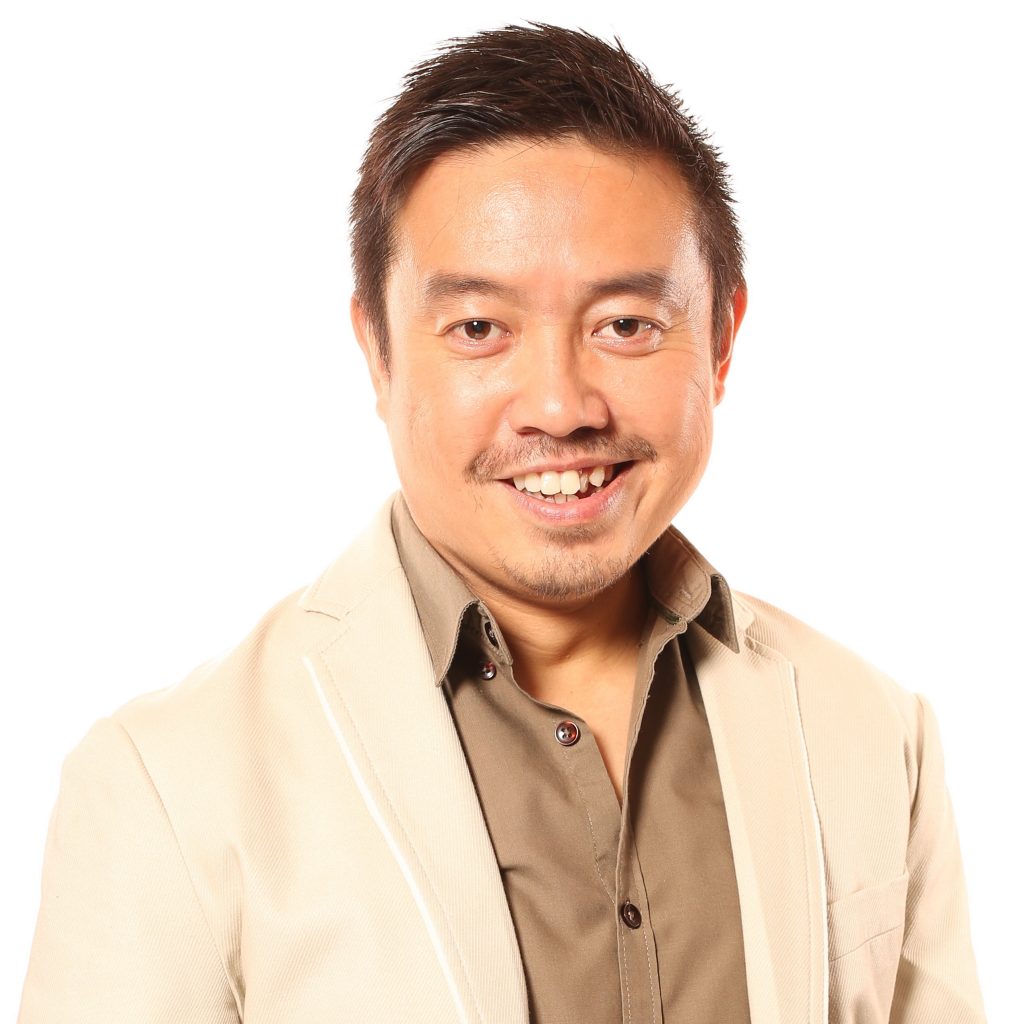 SDEA Spotlight is a series of short interviews with SDEA members that peel back the curtain behind their practice, their beliefs about arts and drama education and their influences.
Edmund Chow has an MA (New York University) and a PhD (University of Manchester). He currently works at INSEAD.
SDEA Spotlight is a series of short interviews with SDEA members that peel back the curtain behind their practice, their beliefs about arts and drama education and their influences.
Edmund Chow has an MA (New York University) and a PhD (University of Manchester). He currently works at INSEAD.
1. What are you working on at the moment?
I am currently directing "Project Roop Kaur". It is a loose form of ethnotheatre comprising 15-female ensemble. They collected real stories and memories of women (including their own) who survived the 1947 Partition of India and Pakistan. It is a horrific exploration on honour killing, rape, religious conversions, and life as refugees.
"Project Roop Kaur" is a form of community-engaged theatre because most of these women have day jobs and acting is something they are passionate about.
2. What's the direction of your work? Has it changed over the years?
My applied theatre work began in the prison when I started a drama club. It led me to ways that I could not have imagined back in 2004. I have had a good number of years working within prison institutions. But as I moved out of the prison into conflict zones for my doctoral research, I became more acutely aware of the need for a democratic and ethical type of community engagement. Because I've been involved with Afghan theatres for my PhD, I became equally interested in Persian theatres and theatres in the Indian subcontinent. I am now more interested in productions that use vernacular languages, and site-specific performances that have a historical element to it. Though the target populations have changed over the years, I would like to think that my philosophy in applied theatre and practice in theatre-making have deepened.
3. What is a dream project that you hope to do?
A dream project requires some form of ethnography and research as part of a devising process.
To a very large extent, "Project Roop Kaur" is my dream project. I get to work with Punjabi, Hindu, and Pakistani communities in Singapore. It is a dream project because they are speaking in their vernacular languages and we are using an outdoor space which we will be transforming into a 1940s village. The devising process and research have taken four months, and the best part of the process is the 'process'. I am learning so much about the history and diverse cultures of another community not familiar to me. At the same time, they are learning to perform through devising, while steeping themselves in alternative narratives.
There is so much honesty and vulnerability in their storytelling that I am moved to tears each time I am in the workshop and rehearsal space. This kind of work, for me, is a dream project. There is so much learning on my part - and that, for me, is exciting and challenging.
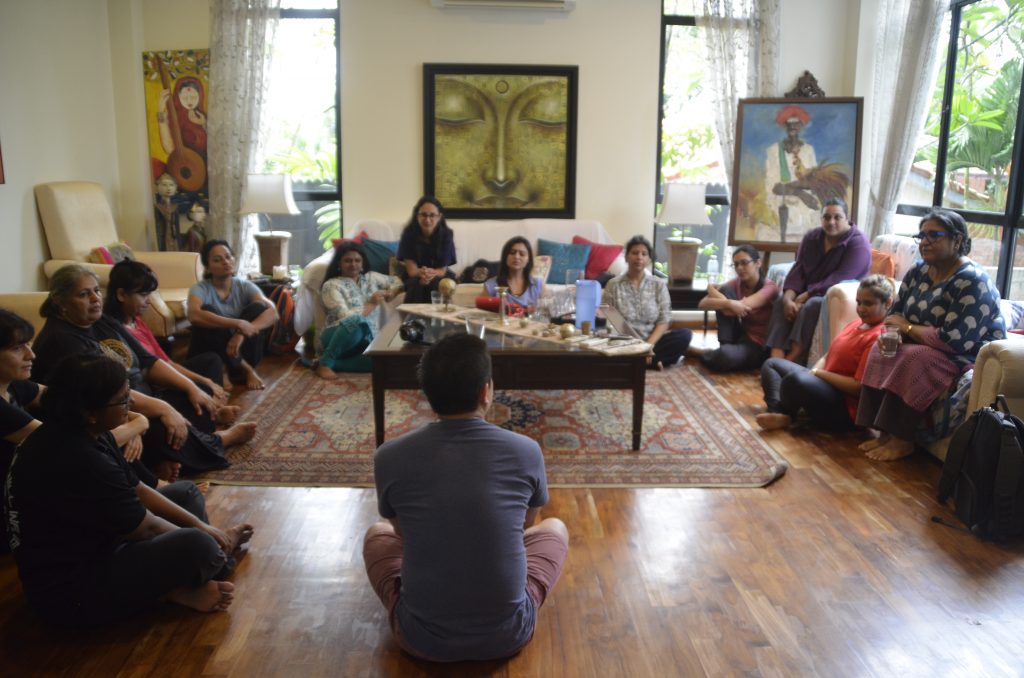
4. How did you start out doing what you do?
I started my applied theatre work at Kaki Bukit Centre (Prison School) in 2004. After a year, I had run out of ideas (as I was not fully trained as a drama educator then). Thanks to the NAC Arts Scholarship, I then pursued a Master's at New York University focusing on drama education, theatre of the oppressed, prison theatre and drama therapy. When I returned to the Prison School, I incorporated lifeskills into the curriculum. After that, everything else is a variation of the different things I have learned and experimented.
5. How do you keep your work fresh?
I try to watch different types of shows to get inspired. Various arts genres, I mean.
But as I focus a lot on the devising and creative process, I also invite the participants to let their ideas germinate, so they have a greater sense of ownership with the final product. To some extent, that can be fresh too.
6. What do you think makes a perfect drama educator?
You know that is a trick question, right? There is no 'perfect' student just as there is no 'perfect' drama educator. We are always learning to be more effective each time, to inspire students to access their emotions more comfortably, to build better friendships, and to learn to embrace diversities and differences. An effective (rather than perfect) drama educator aims to take learning to a fun place, to a place deep enough for self-discovery, and a place high enough for imagination.
**
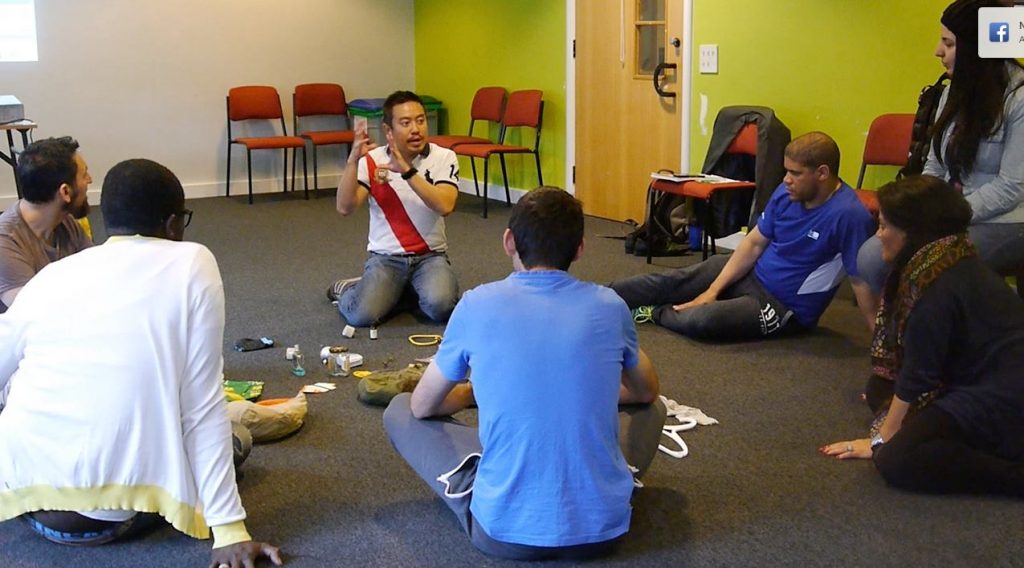
- Why is drama important? Why should it be taught in schools?**
I am going to give a different take to this question and move away from primary or secondary schools. I am currently teaching at INSEAD Business School, so these are adults who are taking their Executive MBAs and MBAs. They are very outcome-oriented and do not appreciate ambiguity.
But what surprised me most is their need to build charisma in their leadership and communication delivery. As such, I have used improvisations in my classes to build up their confidence in public speaking and to build their sense of gravitas and authenticity. I have taught them to use and own their space. That's a key component in leadership training.
But if you look at it, all these skills are the building blocks in drama, where children learn to perform to each other without mumbling and stumbling over words, or learning about the breath and voice projection. Through my observations, I have also found that adults who have had some form of drama training in schools are more 'present' in the boardroom than those who have not done so. In other words, if we start to teach drama from a young age, we will be producing better, and more empathetic leaders decades after they have graduated from your drama class.
**
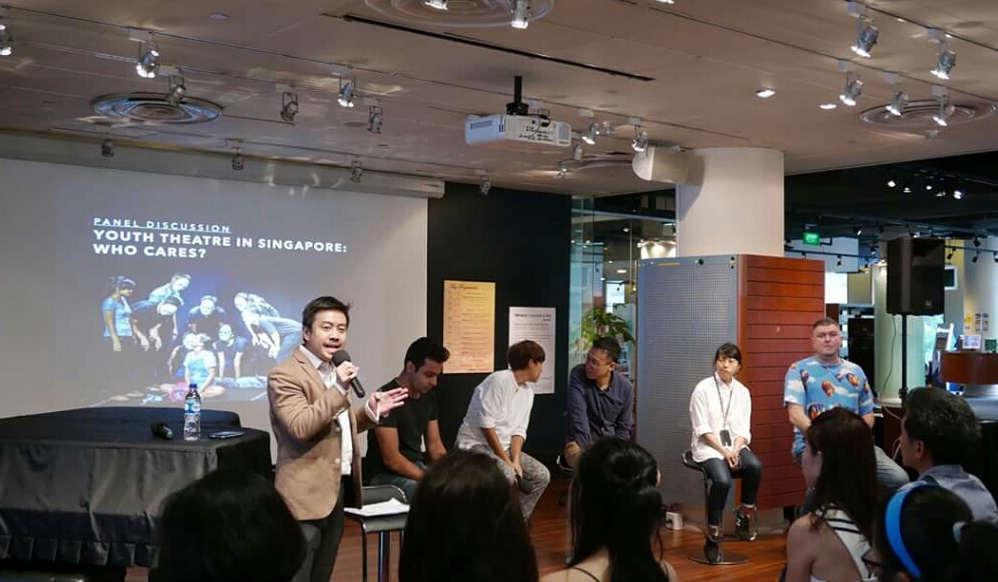
- Who was the drama educator that has the most impact on you?**
Dr Noorlinah Mohamed. She was the first drama educator who came into the Prison School and showed me a world beyond the drama club.
9. What is your most memorable moment in the classroom/on stage?
Performing naked (OK, not fully naked, but I was in my undies!) in "The Other Me" in 2009 directed by Jeremiah Choy -- because I was out of my comfort zone. The preparatory work to get me there helped me to embrace vulnerabilities, insecurities, and all the other gunk wrestling in my head. That was the most memorable for me as a performer.
10. Share a drama activity that you love to do.
I love Augusto Boal's "2 by 3 by Bradford". The purpose of this activity is to increase concentration. It is also a subtle way to introduce sound and gestures, so that you can use sound and gestures in a more developed way during the drama (e.g. machines).
In your pairs, get them to count 1, 2, 3 as quickly as possible.
E.g. A says 1, B says 2, A says 3, B says 1, A says 2, B says 3, A says 1, etc. To minimise the confusion, A should always be the one starting with the number 1.
Once they have acquired sufficient speed and competency, increase the level of difficulty by having B replace 2 with a rhythm and sound. Let's say B makes a clapping sound and utters "waaah", A will have to imitate that same sound and gesture whenever 2 is meant to be said.
E.g. A says 1, B claps and says "waah", A says 3, B says 1, A claps and says "waah", B says 3, A says 1, etc.
Once they have acquired sufficient speed and competency, increase the level of difficulty by having A replace 3 with a different rhythm and sound. So whenever 3 is meant to be said, it will be a different rhythm and sound invented by A.
E.g. A says 1, B claps and says "waah", A jumps and says "whoosh", B says 1, A claps and says "waah", B jumps and says "whoosh", A says 1, etc.
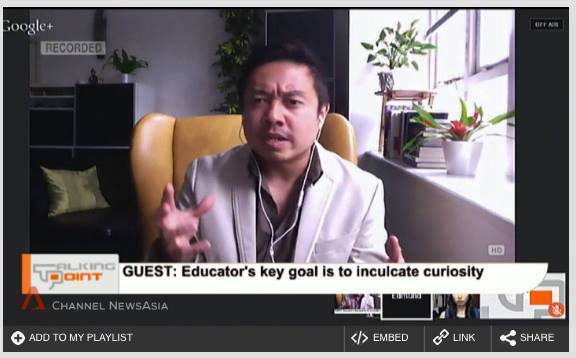
11. What do you hope to see in Singapore's drama/theatre landscape in future?
The SDEA Theatre Arts Conference 2017 was a very good platform for educators in the region to share about their work. To a large extent, I can sense they are very appreciative of Singapore's drama education scene being a forerunner in Asia. This, we must keep.
However, I hope we have the time and energy to do research and analyse the data in a more empirical way. We are lacking in scholarly research here in Singapore. I feel that we don't have enough data to support our advocacy, or to even have a critical discussion. I feel that our scene has matured and we can now engage in more robust critiques of our own methodologies and processes within drama education.
12. In one word, sum up your drama education journey.
Elasticity.
Don't miss Edmund's directorial work, 'Project Roop Kaur', a performance that explores the narratives of women during the 1947 Partition of India and Pakistan. Happening on 11-13 August 2017, get your tickets here at Peatix.



